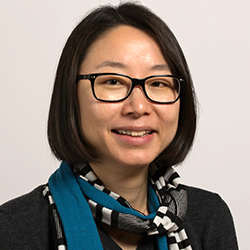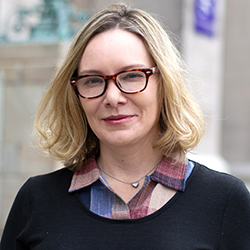The best short paper at iConference 2020 hailed from the University of Washington Information School, while a second iSchool paper was among the finalists for the award.
“Challenges in Organizing and Accessing Video Game Artifacts” by iSchool Associate Professor Jin Ha Lee and Ph.D. candidate Marc Schmalz, with collaborators Stephen Keating and Jeewon Ha won the award announced March 26 at the international conference, held virtually this year due to the COVID-19 pandemic.
Short research papers are limited to 3,000 words and often explore new or provocative themes in information science. In their paper on video game artifacts, Lee and company explore the challenges inherent in preserving the history of video games and their development, including the many digital artifacts involved.

“Most digital games created during the industry’s relatively short history are no longer easily accessible for study and play," the paper notes. “Even when we preserve games, finished products are only part of the story. Researchers and memory institutions have given far less attention to artifacts associated with game development, such as game design documents, technical design documents, art bibles, style guides, musical scores, test builds, voice-over auditions, and marketing material.”
The paper summarizes discussions with stakeholders including people in the game industry, librarians and museum curators, and game researchers. The work is part of a project made possible by a grant from the U.S. Institute of Museum and Library Services.

“The What of Data: Sharing Appropriate Scientific Research” by iSchool post-doctoral researcher Bernie Boscoe was among the finalists in the same category. The paper, on how data is shared among scientific researchers, explores an issue that’s surfacing more frequently as more publishers require open publishing. Increasingly, funders and publishers are requiring that researchers share their data, but that presents a problem to researchers who rely on informal agreements to share data with one another. Astronomers, for example, rely on this method to share analyzed data from other astronomers around the world, Boscoe said.
“The data sharing practices in science are not written down; they’re informal agreements between researchers,” Boscoe said, explaining the issue. “So to understand how data is shared, you need to talk to people and try to figure out what their processes are.”
In her paper, Boscoe lays out a framework for uncovering such “unspoken rules” with the goal of providing both researchers and publishers an approach that makes data available in an acceptable way.
The iConference is an annual gathering of scholars and researchers from information schools around the world, first held in 2005. The 2020 edition was originally scheduled to be held March 23-26 in Borås, Sweden.